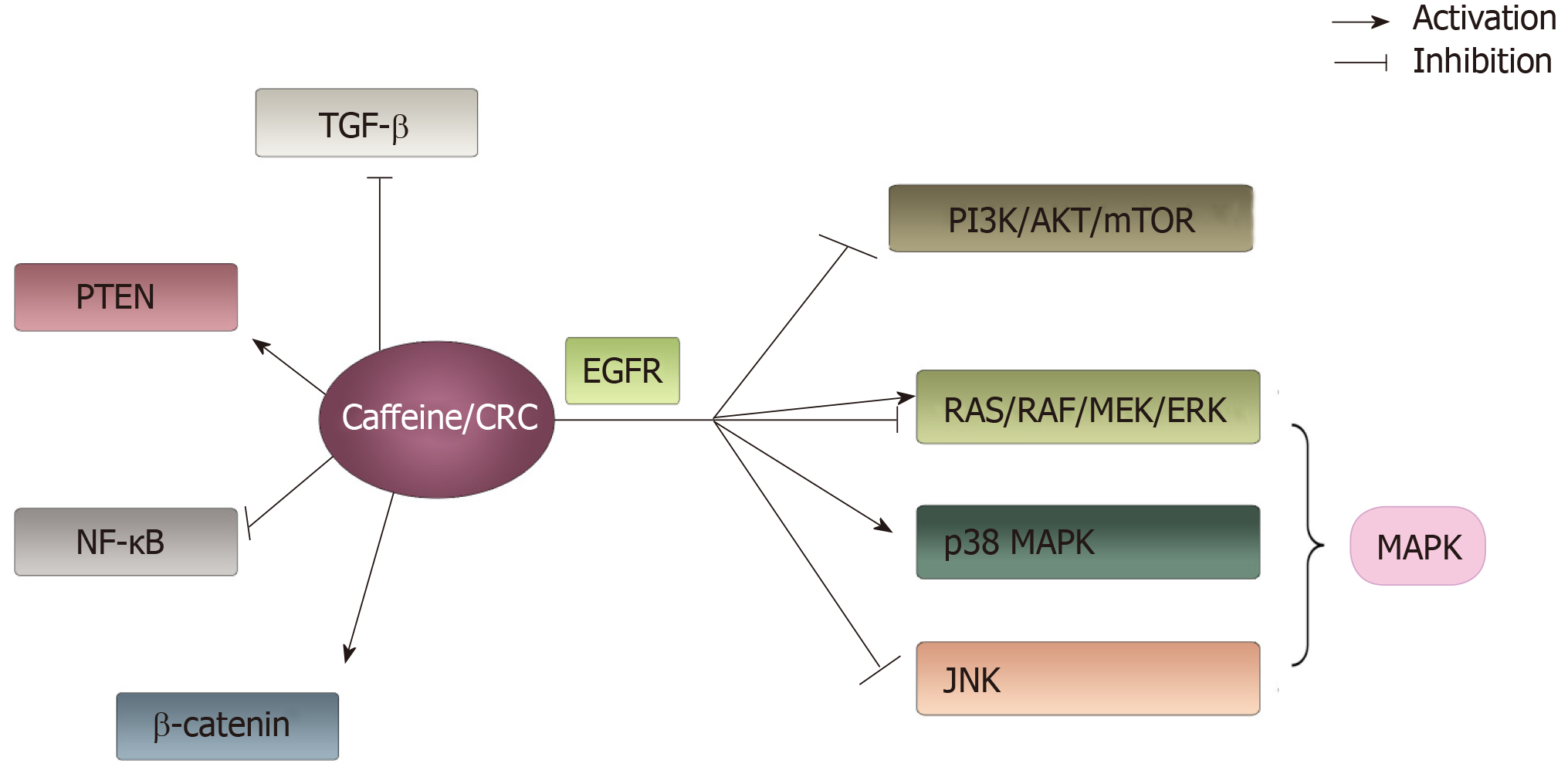Copyright
©The Author(s) 2020.
World J Gastrointest Oncol. Feb 15, 2020; 12(2): 149-172
Published online Feb 15, 2020. doi: 10.4251/wjgo.v12.i2.149
Published online Feb 15, 2020. doi: 10.4251/wjgo.v12.i2.149
Figure 5 The main signaling pathways associated with colorectal cancer that can be influenced by caffeine involved in this article.
Caffeine can interact with a number of signaling pathways. It shows an active effect on phosphatase and tensin homolog, β-catenin and p38 mitogen-activated protein kinase pathways. Additionally, it has negative effects on transforming growth factor β, NF-ΚB, phosphoinositide-3-kinase/AKT/mammalian target of rapamycin and c-Jun N-terminal kinase pathways. Moreover, caffeine showed a dual function on RAS/RAF/MEK/ERK pathways depending on concentration of caffeine. PTEN: Phosphatase and tensin homolog; MAPK: Mitogen-activated protein kinase; TGF-β: Transforming growth factor β; PI3K: Phosphoinositide-3-kinase; mTOR: Mammalian target of rapamycin; JNK: c-Jun N-terminal kinase.
- Citation: Cui WQ, Wang ST, Pan D, Chang B, Sang LX. Caffeine and its main targets of colorectal cancer. World J Gastrointest Oncol 2020; 12(2): 149-172
- URL: https://www.wjgnet.com/1948-5204/full/v12/i2/149.htm
- DOI: https://dx.doi.org/10.4251/wjgo.v12.i2.149









